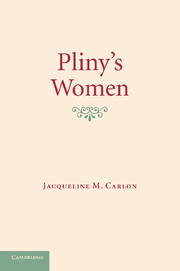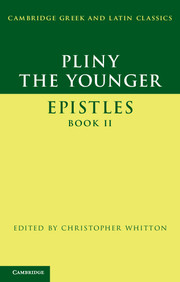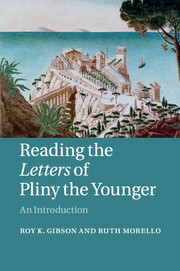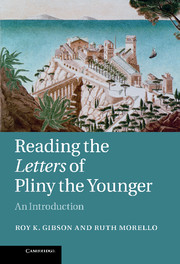The Art of Pliny's Letters
In this book on intertextuality in Pliny the Younger, Professor Marchesi invites an alternative reading of Pliny's collection of private epistles: the letters are examined as the product of an authorial strategy controlling both the rhetorical fabric of individual units and their arrangement in the collection. By inserting recognisable fragments of canonical authors into his epistles, Pliny imports into the still fluid practice of letter-writing the principles of composition and organisation that for his contemporaries characterised other writings as literature. Allusions become the occasion for a metapoetic dialogue, especially with the collection's privileged addressee, Tacitus. An active participant in the cultural politics of his time, Pliny entrusts to the letters his views on poetry, oratory and historiography. In defining a model of epistolography alternative to Cicero's and complementing those of Horace, Ovid and Seneca, he also successfully carves a niche for his work in the Roman literary canon.
- Was the first book to consider Pliny's private epistles as a work of literature
- Offers close readings of several epistles
- Provides an appendix cataloguing all allusions to Cicero's correspondence
Reviews & endorsements
Review of the hardback: '… perhaps the most ambitious literary examination of Pliny's letters produced in the last eighty years … Marchesi successfully exposes the complexity of Pliny's enterprise, giving a clear sense of its richness and its detailed interaction directly and through intermediaries with both the literature of his own time and that of canonical stature.' International Journal of the Classical Tradition
Product details
February 2008Hardback
9780521882279
292 pages
229 × 152 × 21 mm
0.6kg
Available
Table of Contents
- Introduction
- 1. The semiotics of structure
- 2. Sed quid ego tam gloriose? Pliny's choice of poetics
- 3. The importance of being Secundus: Tacitus' voice in Pliny's letters
- 4. Storming historiography: Pliny's voice in Tacitus' texts
- 5. Overcoming Ciceronian anxiety: Pliny's niche/nike in literary history
- From dawn till dusk: four notes in lieu of a conclusion
- Appendix to Chapter 5.






